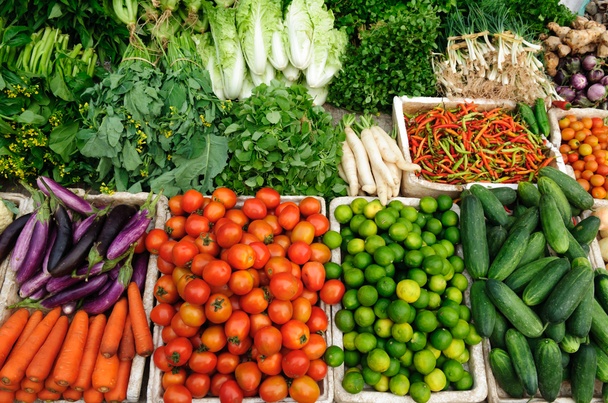Making Food Stamps More Effective at Regular Grocery Stores, Not Just Farmers’ Markets
June 19, 2013
Source: The Atlantic Cities
Author: Sarah Goodyear
Getting fresh, nutritious, affordable food to the people of Michigan can be a challenge, especially in the state’s economically struggling cities. According to the nonprofit Feeding America, the state has a 17.9 percent rate of food insecurity, a rough measurement of families who aren't sure where their next meal is coming from.
In Wayne County, where Detroit is located, 22 percent of residents regularly don't have enough to eat. That's more than 400,000 people.

That’s part of the reason why a national nonprofit called Fair Food Network decided that Michigan was the ideal place to launch a program called Double Up Food Bucks. For the last three years, it has allowed shoppers with SNAP cards (a.k.a. food stamps, known as Bridge cards in Michigan) to get twice as much purchasing power at 75 farmers' markets around the state.
Here's how it works: customers present their Bridge benefits card, get the wooden tokens that allow them to shop at the farmers' stalls, and also receive up to $20 in matching silver tokens that can be used exclusively to buy fruits and vegetables grown in Michigan.
"It's not only a food security program," says Oran Hesterman, the president and CEO of Fair Food Network. "It's a job creation program." Hesterman says that the program, which is bankrolled by a coalition of 45 foundations, has given Michigan farmers an expanded market for their goods. Some 83 percent of participating farmers surveyed by Fair Food Network reported greater profits, and 75 percent of SNAP users using Double Up Food Bucks said they bought more fruits and veggies.
Hesterman says the program shows that people will choose apples over donuts, if the apples are available and affordable, which is rare in too many parts of cities like Detroit. "There are so many families who can only access highly processed, high calorie food that’s not good for their health," he says.
Still, an initiative limited to farmers' markets can only go so far. "From the beginning," Hesterman says, "we knew if we were going to scale this program, we were going to have to expand beyond farmers' markets."
This year, from July 1 to October 31, they will do just that. Three independently owned supermarkets within the city limits of Detroit will be offering Double Up Food Bucks for Michigan produce, the first such program in the nation. The goal is to have 5,000 shoppers participate, and Fair Food Network has launched an information campaign that includes billboards, radio spots, and direct mail. "The greatest challenge is going to be letting people know about it," says Hesterman. "But once a person comes one time, we find that they will invite cousins, aunts, friends."
Each grocery store plans to carry at least 15 Michigan-grown fruits and veggies at any given time, supplied by a distributor who is working with Fair Food Network. Michigan, says Hesterman, has the second-most diverse array of produce in the country after California, so as the season unfolds shoppers will be able to choose from locally grown greens, carrots, beets, lettuce, melons, cherries, peaches, apples, pears, and much more.
Hesterman wants to scale up the program in 2014, and to do that, his organization will have to move beyond foundation funding. So he is now carefully watching the farm bill currently moving through Congress. The version approved by the Senate last week has funds for SNAP-related programs like Double Up Food Bucks. The version being floated in the House currently contains a lot more cuts to SNAP.
A program like this one, Hesterman argues, can bridge some partisan divides, by tying SNAP benefits directly to the economic wellbeing of farmers. Not only that, he says, getting people access to healthier food will result in lower health care costs in the long term.
"This is a new way to look at food assistance as nutritional assistance instead," says Hesterman. "This is about creating a more effective food policy."
First published at The Atlantic Cities on June 19, 2013. Sarah Goodyear has written about cities for a variety of publications, including Grist and Streetsblog. She lives in Brooklyn.







